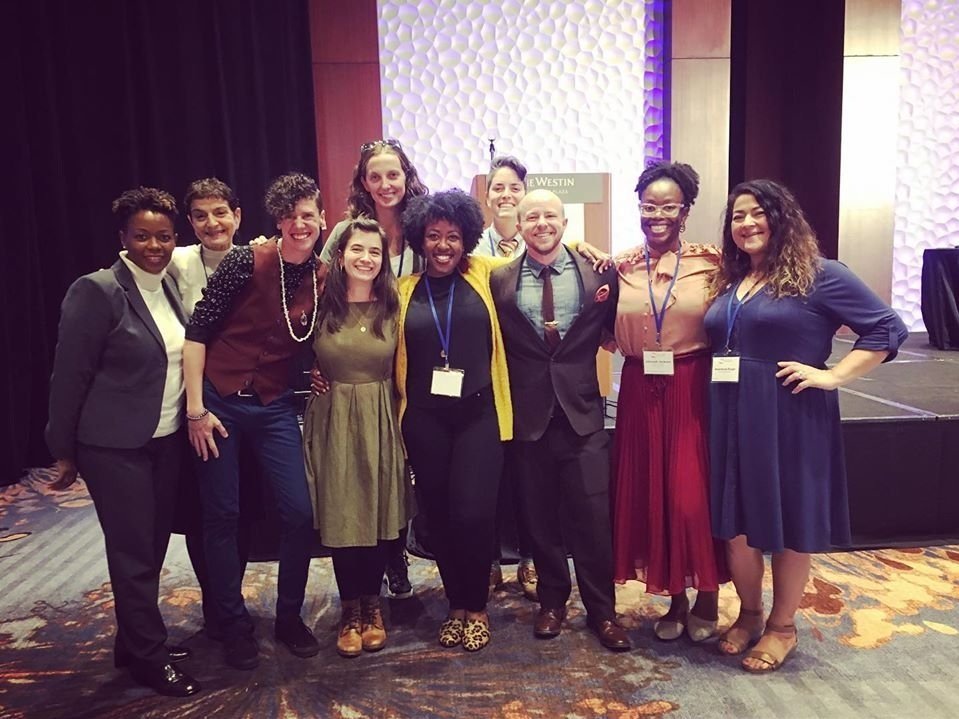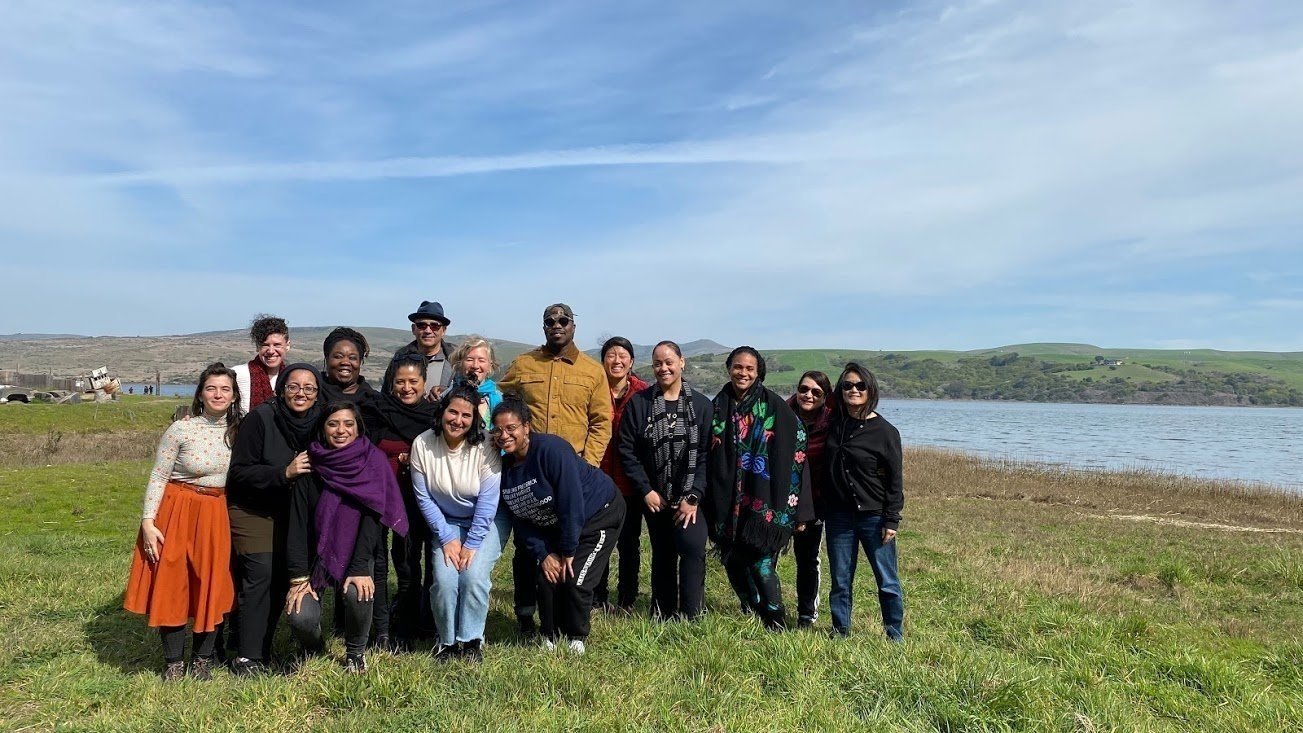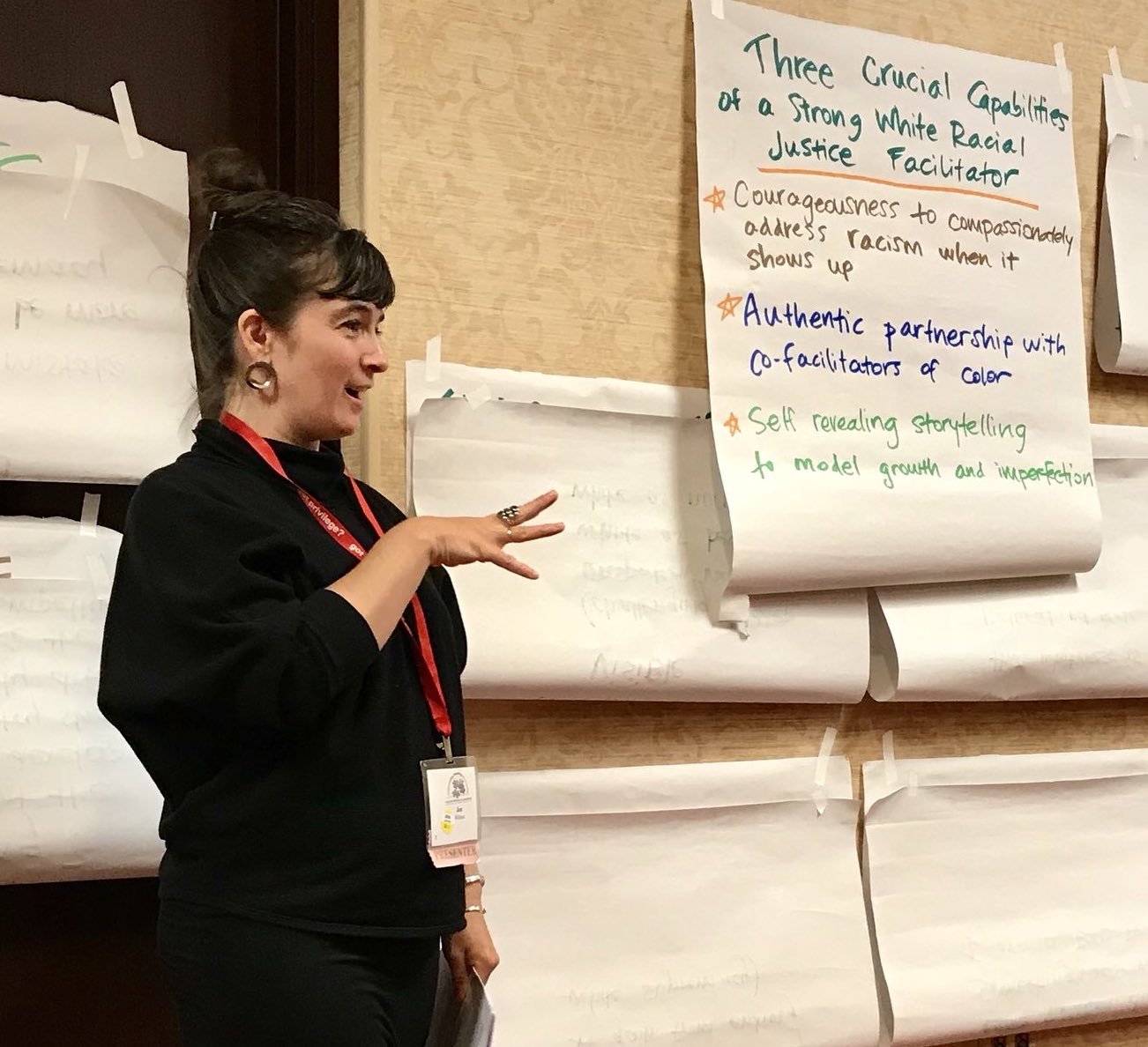Reflections on Four Years of Independent Practice (2018-2022)



I am celebrating! Taking the leap into independent practice after working for a Black-led non-profit consulting firm for a decade was not intuitive or easy. Four years later however, I am grateful for and proud of the ways I have been able to strengthen my antiracist facilitation practice, work in partnership with incredible people, and practice more creative approaches in my work.
These four years are bookended by me bringing new life into the world, literally, as I birthed my first child in February 2017, and am preparing to birth my second in May 2022. Given that, it feels like a good time for me to pause and reflect on some of what I have witnessed, learned, and tried out during these four years.
Over these four years, I have:
worked with 19 organizations in an antiracist consultant and facilitator role, sometimes on my own; other times in partnership with Mattice Haynes, Melinda Weekes-Laidlow, or Roan Coughtry
provided White Antiracist Leadership Coaching to more than 16 individuals
created or co-created 12 different stand alone workshops designed to skill up more white people to break allegiance with whiteness
During this period, the context for the work has been potent: the summer of pro-Black uprisings sparked by the murder of George Floyd, the embodiment of the “Make America Great Again” authoritarian movement in the 45th presidency of the U.S., 2+ years of the Coronavirus pandemic, increased visibility and public support for Asian Americans, transgender people, and Indigenous groups in particular.
What are some of the most persistent and harmful barriers I see social justice organizations inflicting upon themselves, thus blocking their efforts to uproot racism?
The pace and volume of “work” that is normalized as well as expected inside organizations is unsustainable. Most often, even when this is acknowledged as problematic on some level, I see a lack of action by organizational leadership to reduce expectations of “productivity” and to make time and space in peoples’ workloads for antiracist culture and behavior shifting.
It is heartbreakingly rare for Black women to have non-Black colleagues (especially but not exclusively white) who they can rely on as strong, accountable and trustworthy antiracist partners.
An accumulation of harm and mistrust is often felt among colleagues, and has not been tended to sufficiently inside the organization.
White organizational leaders (defined broadly) are frequently stuck in counter-productive modes of:
Performance, ego (an attachment to being perceived as competent and in support of BIPOC colleagues and anti-racism that is experienced by others as shallow or fake)
When feeling attacked or threatened by antiracist truth-telling in the organization, responding by projecting uncomfortable feelings onto someone else rather than looking inward
A failure to take strong antiracist stances, which are backed up by decisiveness and accountability
And where am I seeing promise? What gives me confidence for the future?
Multiracial teams can make huge shifts to build trust and advance racial justice if they set aside time for honesty and alignment-building, with a shared willingness to do things differently
This set of Group Agreements I’ve begun using with all or majority white groups helps to create a powerful container that cuts through a lot of B***S***:
Vulnerability is power
Choose presence over performance
Choose risk over familiarity
Explore disagreement without dehumanization
Listen deeply
The prolific, creative and unapologetic projects that Black and Indigenous people are birthing and building without reference or deference to any aspects of white supremacy
The growing awareness that racism does not live in our thinking brains, and that this work is about interrupting inherited intergenerational, somatic, and emotional habits perhaps even more than understanding how structural racism works or knowing the latest smart sounding things to say. I am so grateful for the work of Resmaa Menakem, Prentis Hemphill, Staci Haines and others who are leading the work of embodied healing.
The increasing body of work that focuses on dreaming of and building a future free of white supremacy
So, what awaits me in 2023 and beyond? How will our context continue to shift and how will we continue to shape it and respond to it? We shall see…
